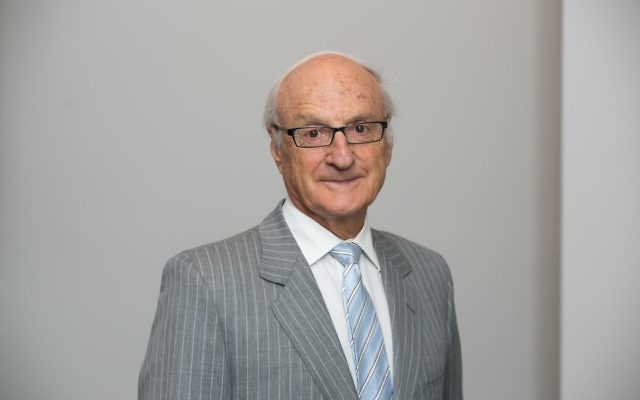Recognition for medical experts
A NEW report from Thomson Reuters has named two Jewish diabetes experts among seven Australian scientists on the prestigious 2014 list of the World’s Most Influential Scientific Minds.
A NEW report from Thomson Reuters has named two Jewish diabetes experts among seven Australian scientists on the prestigious 2014 list of the World’s Most Influential Scientific Minds.
Director emeritus, Baker IDI Heart and Diabetes Institute, Professor Paul Zimmet, and associate director Professor Jonathan Shaw are included in the report, which is prepared by analysing citation data over the last 11 years to identify those who produced the highest impact work. It names 400 scientists in clinical medicine from all around the world.
Last month, another peer review group, Expertscape, listed Professor Mark Cooper, Baker IDI’s chief scientific officer as the number-one expert in the areas of experimental diabetes and diabetic kidney disease, and number two in diabetes complications globally.
In the same review, Zimmet was listed as number four in diabetes and number six in type 2 diabetes globally.
He described it as “an incredible and unexpected honour” to be included with Shaw in the Thomson Reuters report and with Cooper in Expertscape.
“These achievements dramatically underline the very high ranking of the Baker IDI as one of the world’s leading centres in diabetes,” he said.
Earlier this year Zimmet was awarded an honorary doctorate from Tel Aviv University in recognition of his life’s work in the field.
Meanwhile, Melbourne transplant physician Associate Professor Dr Shlomo Cohney has received the 2014 Ian McKenzie Prize for Outstanding Contribution in Transplantation from the Transplant Society of Australia and New Zealand (TSANZ).
The prestigious accolade recognises researchers who have demonstrated excellence and who have made an exceptional contribution in the field of transplantation. It was presented to Cohney for, among other things, his groundbreaking work instituting renal transplants for people where there is incompatible blood grouping.
“It’s certainly brought something completely new to transplantation in Australia,” he said of the work he’s been recognised for.
He said that when he began working seriously in the field of transplantation 10 to 15 years ago, there were insufficient organs and insufficient donors, and patients were forced to endure unpleasant side effects as a result of anti-rejection medications. The work he has done since then has made improvements across all these areas.
Cohney said he feels so strongly about the area of transplantation because patients in renal failure are “a group of people who have many disabling medical problems”.
“Transplantation will usually add at least 10 to 15 years of life compared to remaining on dialysis, and enables many people to resume work and a more normal life,” Cohney said.
He was presented with the prize at TSANZ’s recent Annual Scientific Meeting, describing the accolade as “a great honour”.
PHOEBE ROTH
Professor Paul Zimmet has been named on the 2014 list of the World’s Most Influential Scientific Minds.


comments